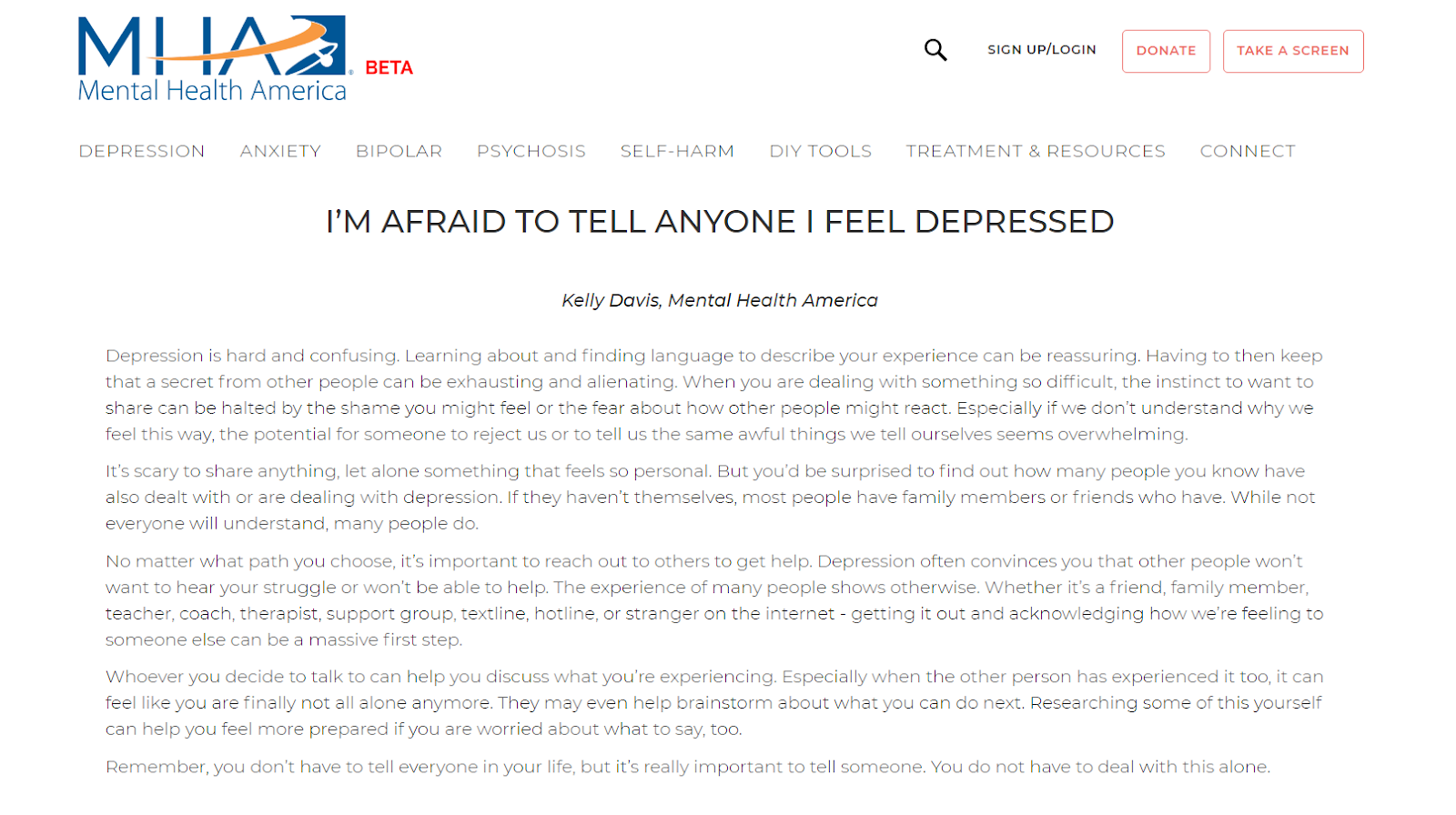You are here
What to Do When Your (South Asian) Parents Don’t Understand Your Mental Health
July 6, 2018
By Sachin Doshi, MHA Director of Development

This article was originally written with a South Asian audience in mind and was originally published in the March 2018 issue of Young Minds, a periodical e-magazine produced by Young Jains of America (YJA). All content is reproduced and modified with permission. You can access the original article here.
Three years ago, I started working for a nonprofit called Mental Health America (MHA). I had almost no experience with the field of mental health and, in fact, I’d only landed the job because of a grueling 7-month job search after I realized I no longer wanted to go to medical school. I felt lost, isolated, lonely, and worthless. Chances are that if you’re reading this, you fall into one of two categories – you’re unsure about why you’ve been struggling lately, or you know you’re having mental health concerns but don’t know what to do about them. Instead of diving into my own story, I want to show you how to turn awareness into action by sharing some steps that you can take to address your mental wellbeing if you find yourself in a less-than-ideal family or community situation, as so many of us do. There is hope, and things can always get better.
Regardless of whether you think your feelings are expected reactions to a specific stressor in your life or signs of an underlying mental health condition, if they are causing you any pain, worry, or otherwise disrupting your daily life, it is always a good idea to address them as soon as possible. I know it’s scary to think about what you’re experiencing as a “mental health issue,” but it’s important to remember that the earliest signs of these conditions can look as simple as losing interest in the things you used to enjoy, or having trouble sleeping or keeping worrying under control.
When we treat diseases like cancer or heart disease, we start way before Stage 4 – we take steps to prevent them, to identify their symptoms early, and to treat them with a goal of reversing the condition and helping you achieve recovery. But as a society, we don’t do the same for mental health concerns. We wait until they’re incredibly serious and potentially life-threatening. Having depression does not need to mean you want to take your own life. Having anxiety does not need to mean you have panic attacks when leaving your house. By learning about and catching mental health concerns regularly, when you aren’t in crisis, you can keep your mind just as healthy as your body.
One of the quickest ways you can monitor your mental health is by taking a mental health screening online. In the same way that you get an annual checkup with your doctor, you should consider a regular mental health screening part of your routine healthcare. Taking a screen is free, anonymous, confidential, and takes as little as 5 minutes. MHA works with universities, researchers, and other groups to offer screens for depression, anxiety, eating disorders, PTSD, bipolar disorder, psychosis, alcohol or substance use at MHAScreening.org.
Screens are meant to be a starting point for you to learn more or to take action around your mental health, and you can decide what you do with the results. For example, taking your positive screening results to a family doctor is an excellent way to start a conversation and discuss how best to address your concerns, including finding a mental health professional if that is feasible for your situation. Just be aware that your parents can request access to your medical record if you are under 18.
Screens are also a great way to confirm or deny questions you might be having about the way you feel. For example, if you think you may have bipolar disorder and screen negative for it, chances are that there may be alternative causes for the way you feel. At the same time, screening negative does not definitively mean that you don’t have bipolar disorder.
Learning more about any of this can be stressful – the resources you find can be hard to understand or sound like you’re reading a textbook. That’s why MHA has developed Screening-to-Supports, a new beta site where you can learn more about mental health concerns in plain language, without having to deal with medical terminology. Often, our articles are written by people who have been where you are now, with the intention of helping you in your journey to getting better. In particular, if you’re not sure how to discuss your concerns with someone else, I strongly encourage you to read a quick step-by-step guide by clicking here. It’s equally applicable whether you’re struggling with your mental health, with alcohol or drug abuse, or both.
 One of the many articles on the Screening-to-Supports site.
One of the many articles on the Screening-to-Supports site.
It can be hard to figure out who you are comfortable approaching about your concerns. If you are unsure who to turn to, remember that your support network can be larger than you think. It can be difficult to come to your parents, because often they don’t know how to respond to changes in your behavior or to your attempts to start a conversation. You might be met with unhelpfulness, dismissal, denial, or even hostility. Sometimes the right people to talk to aren’t the most obvious. Consider confiding in a neighbor who is close to the family or reconnecting with old childhood friends who have known you for years. Reach out to your extended family members or talk to your siblings – you might be surprised to find out they can relate. Starting this conversation with anyone can be difficult, but there is a good chance the other person can relate to what you are going through or just be there to listen.
Your school is also a good resource. Teachers, professors, coaches, and friends are great places to start. In fact, I credit my biochemistry professor for helping me reorganize my life after I opened up to him about my struggles. If you have a school counselor, make a quick appointment and let them know what’s been on your mind. If you’re in college, your campus may have free or low-cost counseling services available for students. I would recommend looking into them before stresses begin to pile up. Although they may have their limits, they really can be a useful resource. Just keep in mind that it can take a few meetings to get a sense of whether a specific counselor is a good fit for you. Be sure to verify their confidentiality procedures if that is a concern for you.
Unfortunately, seeking professional help – while never a sign of weakness – isn’t always an option when you grow up in a South Asian household, especially if you’re on your parents’ health insurance. Consider finding and posting in an online community that can offer what we call “peer support” – connections to people who have experienced what you’re going through. MHA has started gathering some at our growing Connect hub, but chances are you can find plenty of other groups on your own. I’m personally a fan of the depression subreddit at reddit.com/r/depression. These are just a few of the many excellent, anonymous, supportive, non-judgmental communities that would love to hear your voice.
Dealing with mental health concerns isn’t easy, and the families and communities we grow up in can make this worse even when they mean well. By learning other strategies for monitoring and improving your mental health, you can take back control of your life. The resources and tips I’ve listed here are just a few of the options available to you, and you should consider this as more of a starting point. Just remember that the earlier you notice warning signs and act on them, the less likely they are to affect your life.







Add new comment